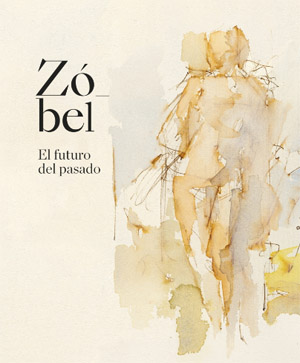How to admire the painting of the great masters without being a passive victim of their fascination? How to immerse oneself in the art of the past without abdicating one's commitment to the modern and contemporary avant-garde? The answer of Fernando Zóbel (Manila, 1924-Rome, 1984) was at once simple and enormously sophisticated: study them in order to understand them, and then reinvent them.
42 paintings, 51 sketchbooks and 85 drawings and works on paper, from Spanish, Philippine and American collections, make up the journey with which the Museo Nacional del Prado, with the collaboration of the Community of Madrid, pays tribute to a fundamental figure of Spanish painting in the second half of the 20th century: Fernando Zóbel, a painter born in Manila into a Spanish family who worked intensively on the paintings of the Prado and founded the Museo de Arte Abstracto de Cuenca. An artist who conceived his painting as a sort of instrument with which to transit -to admire, but above all to understand- the complex routes along which the history of art runs.
"Zóbel. The Future of the Past" explores the painter's work along two itineraries that are fundamental to assess his original contribution to contemporary abstract painting: the first, between modernity and the legacy of tradition, brings together studies of the painter carried out in museums around the world, the Prado Museum in particular, reconstructing his creative process. Secondly, the exhibition follows Zóbel's work through a second itinerary, international and geographical, showing how drawing was the tool that brought him closer to an original and alternative form of modernity that Zóbel discovered in Asia, in the vernacular tradition of the Philippine Islands or in Chinese and Japanese painting. Both itineraries stem from the artist's particular biographical condition: Born in Manila, trained in the United States and finally settled in Spain, Fernando Zóbel was not only an enormously curious and erudite painter, he was also a permanent traveler and a radically cosmopolitan artist.
Zóbel's work constitutes an exciting exercise in artistic pedagogy. Zóbel's drawings teach us to look, slowly, calmly and analytically. His paintings and drawings contain the effort to understand the artistic will that drove artists like Zurbarán or Sánchez Cotán, like Van der Hamen or Velázquez.
Curated by Felipe Pereda, Fernando Zóbel de Ayala Professor of Spanish Art at Harvard University, and Manuel Fontán del Junco, director of Museums and Exhibitions at the March Foundation, both of whom have close professional and institutional ties to the figure of the painter, "Zóbel. The Future of the Past" recreates the modern artist's long conversation with the great masters, a conversation that was forged in museums all over the world, and in the Prado perhaps like no other. Zóbel not only spent countless hours drawing and studying his paintings, but he even generously donated to the museum a significant number of drawings by Spanish masters dating from the 16th to the 18th centuries for its collections.
Structured in five areas, the exhibition reconstructs Zóbel's poetic and artistic itinerary, between the extremes of the same principle: learning to look, to understand the art of the great masters, on the one hand, and, on the other, to pour what he learned into his own work in order to share it. "Zóbel. The Future of the Past" approaches his work from a transnational perspective, which crosses the geographical limits of the three continents-Asia, North America and Europe-where the artist's life took place. Defying attempts to classify his work within the narrow confines of national traditions, this exhibition offers a fundamentally new reading of his oeuvre.
To complete this journey through Zóbel's work, at the end of the exhibition -and together with numerous graphic and visual documentary material- the documentary Memorias del instante. Zóbel's notebooks, produced specifically for the exhibition and whose theme is the long conversation with the masters of the past that populates the nearly two hundred notebooks left by the artist.




